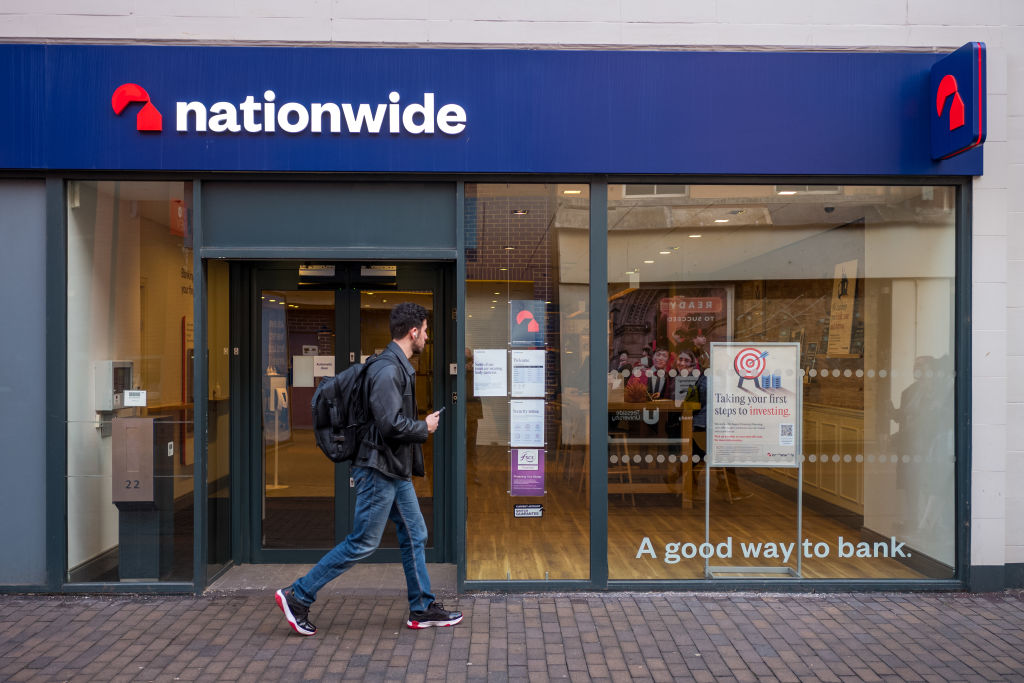Nationwide allows first-time buyers to borrow six times earnings - but is it a good idea?
The UK's biggest building society is to allow first-time buyers with a 5% deposit to borrow up to six times their income


Get the latest financial news, insights and expert analysis from our award-winning MoneyWeek team, to help you understand what really matters when it comes to your finances.
You are now subscribed
Your newsletter sign-up was successful
Want to add more newsletters?

Twice daily
MoneyWeek
Get the latest financial news, insights and expert analysis from our award-winning MoneyWeek team, to help you understand what really matters when it comes to your finances.

Four times a week
Look After My Bills
Sign up to our free money-saving newsletter, filled with the latest news and expert advice to help you find the best tips and deals for managing your bills. Start saving today!
Nationwide, the UK's biggest building society, is to allow first-time buyers with a 5% deposit to borrow up to six times their income.
While house prices remain relatively high, the new mortgage deal from Nationwide could mean some first time buyers are now able to step onto the property ladder.
The raised limit, however, is only available for those taking out a five or 10-year fixed-rate mortgage.
MoneyWeek
Subscribe to MoneyWeek today and get your first six magazine issues absolutely FREE

Sign up to Money Morning
Don't miss the latest investment and personal finances news, market analysis, plus money-saving tips with our free twice-daily newsletter
Don't miss the latest investment and personal finances news, market analysis, plus money-saving tips with our free twice-daily newsletter
The move comes as competition between mortgage providers has intensified in recent months and after a report by the Building Societies Association states first-time buyers are facing the toughest conditions in 70 years to purchase a home.
The new deals are being made available via Nationwide's Helping Hand mortgage range. The building society said that, since 2021, it has lent more than £7.5 billion through the scheme.
Debbie Crosbie, Nationwide's chief executive, said: "Helping Hand has supported around 40,000 people onto the property ladder since we launched it three years ago. We want to do more and are boosting the scheme to six times income and increasing the maximum loan size."
Nick Mendes, a mortgage expert from broker John Charcol, called the increased limit a "game-changer for first-time buyers".
He said: "This increased borrowing power can make all the difference for aspiring homeowners, especially in a challenging market where property prices often feel out of reach."
Is borrowing six times your income too much?
Borrowing limits have typically been set at 4.5 times people’s income and so the new limit being offered by Nationwide is significantly higher.
The increase means a couple with a joint income of £50,000 would now be able to borrow £300,000 rather than the usual £225,000 at 4.5 times. Over 25 years and at a rate of 4%, borrowing £225,000 would cost £1,188 a month, while borrowing £300,000 would cost a much-higher £1,584.
Nationwide has said applications will continue to be subject to robust underwriting checks, including full assessments of credit scores and additional credit commitments but borrowing six times your income may not be suitable for everyone.
"It is a welcome move for the right borrowers, but it is not going to work for everyone," said David Hollingworth, from broker L&C.
A larger loan obviously means higher payments each month, which can put pressure on budgets, especially if circumstances change or unexpected costs arise.
And, although the Bank of England reduced the base rate in August, a larger loan means people are more impacted by interest rate changes. Even a small increase could make your mortgage harder to maintain and those already stretched should be mindful about their ability to meet monthly payments.
Who can get the new Nationwide mortgage deal?
Sole applicants for a Helping Hand mortgage need a minimum income of £30,000, while joint applicants need a combined income of at least £50,000.
The increased maximum loan-to-income ratio means a first-time buyer couple with a joint income of £50,000 can now potentially borrow up to £300,000, assuming deposit and that no other costs affect affordability.
The raised limit is also only available for those taking out a five or 10-year fixed-rate mortgage.
Matt Smith, Rightmove’s mortgage expert, said: “This is likely to be particularly beneficial in areas such as London and the South East where house prices are higher, and currently the average asking price of a home is more than five times the average salary of two people."
Get the latest financial news, insights and expert analysis from our award-winning MoneyWeek team, to help you understand what really matters when it comes to your finances.
Chris is a freelance journalist, and was previously an editor and correspondent at the Financial Times as well as the business and money editor at The i Newspaper. He is also the author of the Virgin Money Maker, the personal finance guide published by Virgin Books, and has written for the BBC, The Wall Street Journal, The Independent, South China Morning Post, TimeOut, Barron's and The Guardian. He is a graduate in Economics.
-
 Should you buy an active ETF?
Should you buy an active ETF?ETFs are often mischaracterised as passive products, but they can be a convenient way to add active management to your portfolio
-
 Power up your pension before 5 April – easy ways to save before the tax year end
Power up your pension before 5 April – easy ways to save before the tax year endWith the end of the tax year looming, pension savers currently have a window to review and maximise what’s going into their retirement funds – we look at how
